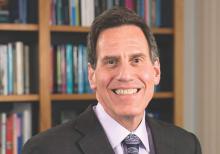The cost of completing the American Board of Internal Medicine’s maintenance of certification program may be higher than previously thought, raising further questions about the value of the program.
New research puts the average physician cost for the 2015 version of the ABIM maintenance of certification (MOC) program at $23,607 over 10 years, with time costs accounting for 90%, according to an analysis published in the July 27 issue of Annals of Internal Medicine.
“The ABIM has previously suggested that participation in MOC will cost $200 to $400 per year; this is a substantial understatement precisely because it overlooks timecosts,” Dr. Alexander T. Sandhu of Stanford University, and colleagues, wrote. “Efforts to decrease the cost of MOC therefore should focus on reducing demands on physician time.”
Researchers determined that cumulatively, the 2015 MOC will cost $5.7 billion over 10 years, including $5.1 billion in time costs resulting from 32.7 million physician-hours spent on completion of MOC. Testing costs account for $561 million over the decade (Ann. Intern. Med. 2015 July 27 [doi: 10.7326/M15-1011]).
Costs vary significantly by subspecialty, according to the researchers, since subspecialtists may take additional certification exams and have greater time demands related to MOC. For instance, the researchers estimated the average 10-year costs for general internists to be $16,725, compared to $32,763 for general cardiologists and $19,074 for endocrinologists.
The constraints on time also have the potential to translate into issues for patients, including increased costs and access to care.
“Whether the costs of MOC ultimately will be borne by physicians or will be passed on to employers, payers or patients is uncertain,” the researchers wrote. “Furthermore, unless balanced by improved efficiency downstream, the increased demand on physician time in a period of anticipated workforce shortfalls may have a deleterious effect on access to care, particularly elective care.”
But Dr. Richard Baron, ABIM president and CEO, countered that the hours spent on MOC allow physicians to increase their knowledge and that they would likely be doing many of those activities anyway, including attending medical society meetings.
“I think most physicians think [spending time on knowledge growth is a] core part of what they do,” Dr. Baron said in an interview. “Whether there was an MOC program or there wasn’t an MOC program, I think most doctors would be spending a lot of time staying current with a rapidly changing profession.”
Dr. Wayne J. Riley, president of the American College of Physicians, sees the analysis differently.
“This underscores our view that MOC as currently constructed can be inordinately burdensome from a time and money perspective,” he said in an interview. ”It does indeed provide one way to quantify how much MOC-associated efforts can end up costing an internist and that a high degree of sensitivity is needed, in our view, and should be given to how to address concerns about the cost, time, and ultimate value of MOC.”
The researchers called for well-designed studies to examine the clinical benefits and economic implications of the 2015 MOC, especially in light of the increased number of Americans covered by insurance through the Affordable Care Act.
The study was funded in part by the University of California, San Francisco, and the Department of Veterans Affairs. The authors reported having no financial disclosures.




